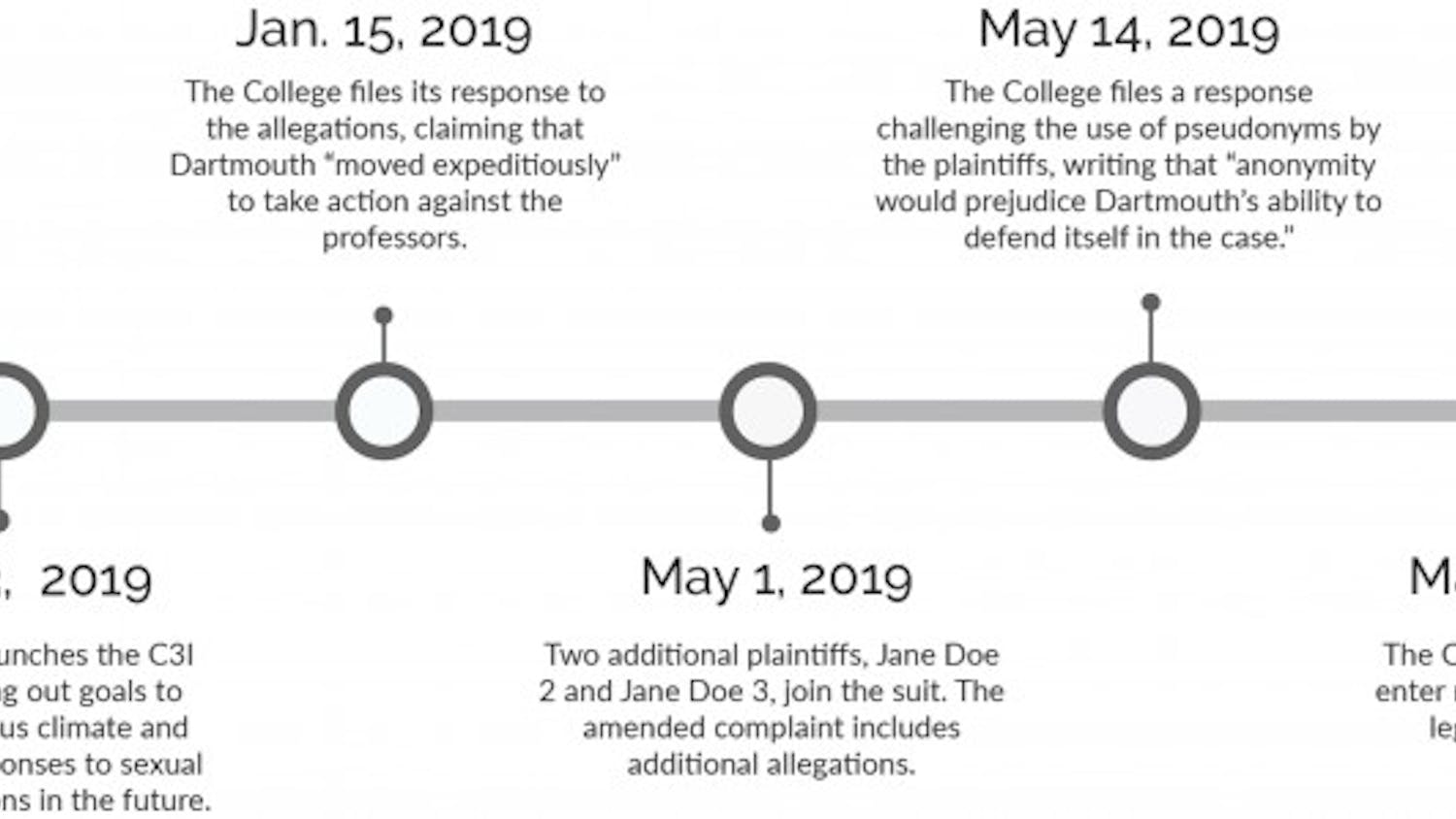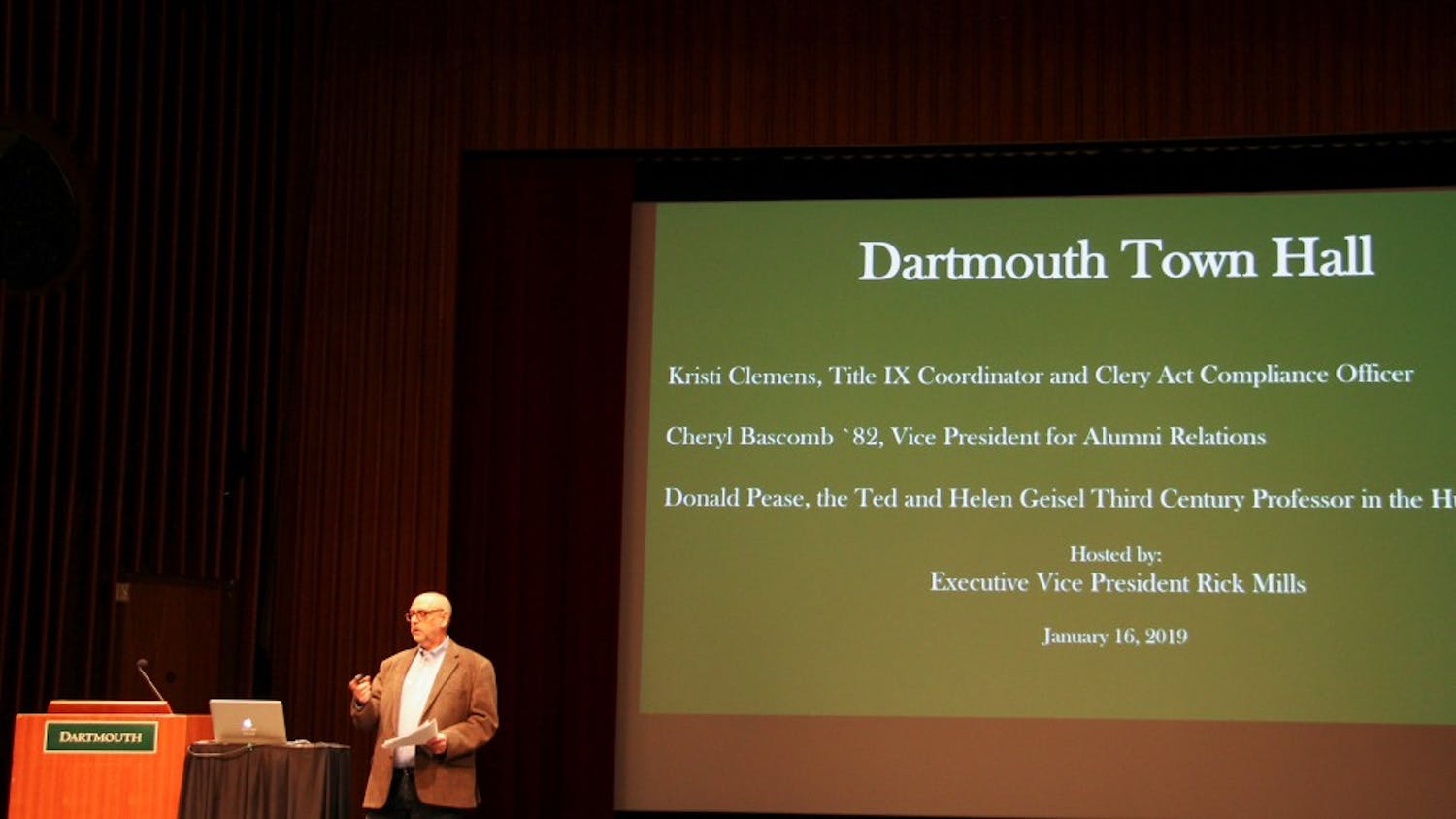The Title IX office doubled in size in July with the hiring of two new coordinators: Sophia Brelvi as deputy Title IX coordinator for training and Gary Sund as Title IX deputy coordinator for response.
Brelvi and Sund will join Title IX coordinator Kristi Clemens and administrative assistant Ruth Kett. Clemens, who has served as Dartmouth's Title IX coordinator since last year, said the decision to hire new staff will help create a greater capacity to assist the community. With the addition of Brelvi and Sund, the office has tripled its capacity for intake, according to Clemens.
“Establishing one deputy Title IX coordinator specifically for response and one specifically to do all the training helps to break up the work of the office, and frees me up to do more higher level policy things,” Clemens said. “If we are going to provide continuity, and high quality and quick response, we are going to need more people.”
Clemens noted that “response” does not always mean an investigation. Many students reach out to the office for help in the form of internal accommodations and academic and housing adjustments, she said. All of these things can take a great amount of time, and having more staff members means that these tasks can be done more efficiently, according to Clemens.
The hirings come as the College continues to implement the Campus Climate and Culture Initiative, which promised the expansion of the Title IX office. The initiative, dubbed C3I, was announced in January 2019 after the filing of a sexual misconduct lawsuit against Dartmouth in November 2018.
The lawsuit, settled in August, prompted critiques of the College’s policies surrounding sexual misconduct. The plaintiffs in the suit alleged that the Title IX office failed to protect their privacy by disclosing their confidential information and counseling records. Dartmouth denied the accusation in its own legal filings, but acknowledged that “administrative errors can and do sometimes happen in virtually all offices.”
The structure and size of Title IX offices at peer institutions vary. Harvard University has two Title IX officers and five administrative staff, and their website claims “50+ coordinators” across the university. Brown University has one officer and five coordinators, one of which serves the undergraduate student population. The University of Pennsylvania has two officers in their Title IX office, while Princeton University has just one.
Prior to working at Dartmouth, Brelvi was the legal compliance coordinator for Morehouse College. Her work as a coordinator will focus on training and outreach to students, staff and faculty. Because of the increased staff members in the office, Brelvi said she plans to meet with student groups and faculty more regularly in an attempt to foster trust and ensure that the campus community understands their rights.
“What we’re planning on doing is having brown bag lunches, just to have informal advising and dialogue — also reaching out to student groups to make sure that we’re engaging with everybody,” Brelvi said. “I want to make sure all the students are understanding what their rights are and how to navigate through situations.”
Fatema Begum ’22, a facilitator for the recently-dissolved Movement Against Violence, said that face-to-face interaction is an important step in shifting Dartmouth’s culture surrounding sexual assault and misconduct. She also noted that much of the anxiety that students feel regarding the Title IX office can be attributed to misinformation and discontent with the results of investigations.
“There are a lot of misconceptions surrounding Title IX,” Begum said. “It’s this big scary thing, and they don’t know the intricacies of it, and the different ways they can help survivors. I feel like there are more misconceptions than distrust, but there is distrust from people who disclose to Title IX and nothing happens — they feel like nothing happens.”
Sund, who worked as a social worker in the state of Maine for 18 years before coming to Dartmouth, said he hopes to foster a closer personal connection with students. Sund said that the office will be able to provide more ongoing assistance to students that reach out for support, and he hopes that this will help alleviate some of the anxiety that people have regarding the office.
“Being able to offer follow-up and ongoing support and assistance will be different than before,” Sund said. “Kristi Clemens has always done a fantastic job with the Title IX office, but one person can only do so much. My hope is what I bring as a social worker is compassion and the ability to stay with them a little longer — just having more time to sit and talk to somebody.”




